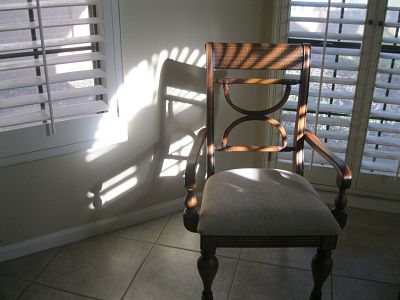
NOTE: This page is for general information - Marshalls do not undertake rights of light work, which is a specialist discipline.
If a new building limits the amount of light coming
in through a window and the level of light inside falls below the accepted
level, then this constitutes an obstruction. Unless you waive your rights
you are entitled to take legal action against your neighbour.
Any kind of development can potentially block the light coming into your
home. For instance: A neighbours new shed, garden walls or extensions or
commercial development. If the developer hasn't taken your right to light
into consideration, you may have a case for compensation or for negotiating
changes to that development. Most cases usually involve a combination of
both.
House extensions are a common cause of right to light disputes as homeowners may employ a local building firm to extend their property without knowing the development could affect their neighbours. The most common problem is where the neighbour has a window to the side of their house to which the light is blocked by a high wall. On a small building project people rarely employ a chartered surveyor, or a right to light specialist the first they know of a problem is when they receive a letter from their neighbours solicitor.
If you know a planned development may restrict your right to light, even after planning permission has been granted, you are within your rights to oppose it. Depending on the extent of the problem, should construction go ahead, the courts are able to either award compensation, cut back the offending part of the development or a combination of both. In extreme cases, the court may issue an injunction to prevent the development altogether. However, a court is unlikely to grant an injunction against a developer in cases where a small financial payment can be made as compensation especially for minor matters or late applications. So think carefully before pursuing this route, as injunctive proceedings can be very expensive. However, if you do have a good case against a commercial developer the law may uphold the rights of residential rather than commercial property owners.
Always get professional advice before starting legal proceedings against your neighbour or a commercial developer. Talk to a chartered surveyor, a member of RICS, who specialises in right to light work. They will be able to explain exactly what your rights are and help you resolve the problem, if possible without having to go to court. If a development is still at the planning stage, your chartered surveyor will be able to estimate the amount of light that is likely to be lost as a result of the new structure. Your surveyor will make a visual assessment, and help you decide whether or not you have a sufficiently strong enough case to go to court. Some firms use 3D modelling to calculate how the existing light will be affected by any proposed change in the way light enters the building. By working out the amount of light left, it is possible to assess how much compensation might be paid. There are several specialists who can carry out this type of assessment. Some chartered surveyors will either carry out the procedure themselves or recommend another RICS surveying firm to do it for you.
If you are concerned that the light coming into your house or business has been affected by an existing structure, you might still be able to take legal action. In some cases, even after completion, the courts may demand that a development is altered to minimise the impact on your property. This is rare but does happen. Again, consult a chartered surveyor specialising in this area and they will help you through the process for seeking compensation or other positive action. Note: if you do find yourself in a dispute over right to light, take advice from a professional but remember you may have to pay for their advice and modify your plans to keep the peace with your neighbours.